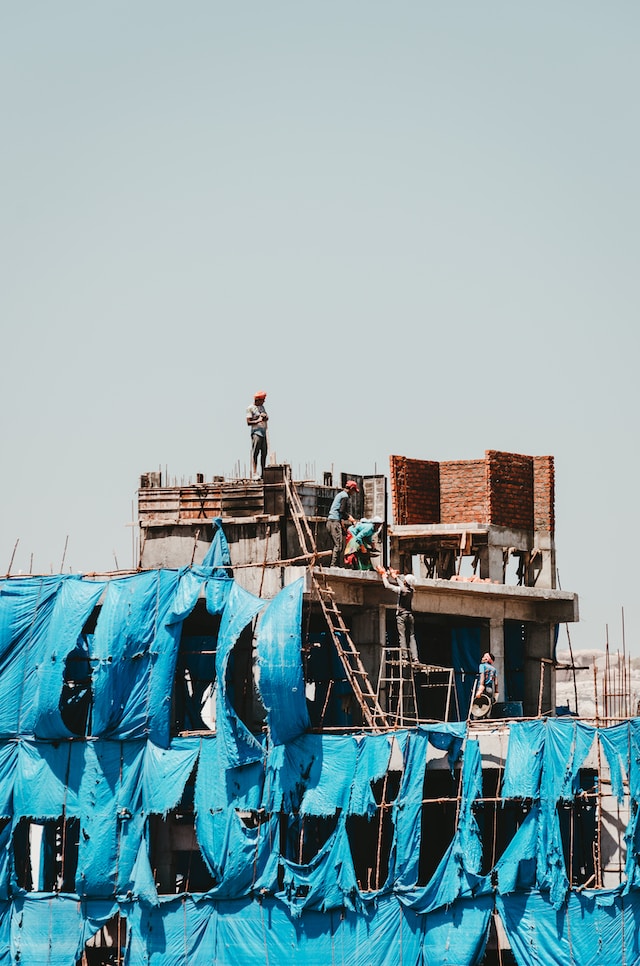Buying Property in Thailand is a great way for foreigners to enjoy a luxurious holiday home or make a sound property investment. However, you need to be aware of specific local laws regarding property ownership before making any purchases.
Thailand has relatively strong property ownership laws and a secure computerized land title system. A title search is a critical part of due diligence when purchasing property in Thailand.
Types of Property
There are many different types of property that can be bought in Thailand. These include condominiums, apartments, villas, and townhouses. Each type has its own advantages and disadvantages. The best one to choose depends on your lifestyle and reasons for moving to Thailand. If you plan to live and work in a city center, a condo may be better suited for you. However, if you want to enjoy the tranquility of a suburban neighborhood, a detached house or villa is a good choice.
Condominiums are the most popular type of property for foreigners to purchase in Thailand. They are essentially a large building that has individual owner units with shared facilities, such as swimming pools, gyms, and reception areas. Under Thai law, up to 49% of a condo can be owned by a foreigner. This is a much more straightforward and hassle-free method for foreigners to own property in Thailand than purchasing a freehold land home.
When buying a condo, be sure to look into the developer’s track record and past projects. It is also a good idea to have a specialist real estate lawyer review your contracts before you sign them. This will help ensure that your rights are protected in the event of delays or construction problems.
Buying a Condominium
Buying property in Thailand can be a complicated process. Enlisting the help of professionals is highly recommended. A real estate agent will conduct research on your requirements, offer suggestions, organize viewings and transportation and give a history of buildings, developers and areas. They will also translate with sellers and help negotiate prices and conditions.
A lawyer who is well versed in Thai law should be your second professional. They can do the legalities for you, including title searches & checking. They will review your contract ensuring all the i’s and t’s are crossed. They will also assist with the statutory fees and taxes required upon transfer.
Before settling on a condo, be sure that it is available for foreign ownership and can be registered under the foreign quota. This should be double checked by a lawyer and the condo office. Also make sure that you can obtain adequate insurance.
Once the Sale & Purchase Agreement is signed and all fees and taxes are paid, the condo will be transferred to you. During this time your lawyer will also register the transfer at the land office. Upon completion you will receive a tabien baan (blue book) showing your resident status as well as the title deed for the unit. Then you can enjoy your new condo! If you are purchasing off-plan, it is common to pay an initial deposit followed by small monthly payments during construction.
Buying a Villa
If you’re looking for a larger residence to enjoy as your primary home in Thailand or as a holiday retreat, a villa may be the right choice for you. Like condominiums, a villa can either be built by a developer in a condominium development (Primary Market) or purchased from a private seller (Secondary Market).
Aside from the purchase price, there are other expenses to consider including recurring property taxes and maintenance fees. Considering that these charges tend to be on the high side, it’s crucial to budget accordingly.
As a foreign buyer, it’s also important to verify the authenticity of the title deed – known as a ‘chanote’ – before signing any documents. This will help ensure that the land is free from encumbrances and liens. A qualified Thai lawyer or legal representative specializing in real estate transactions can assist you with this process.
Another thing to take into consideration when purchasing a villa is the possibility of obtaining financing for the property. It’s recommended that you consult with a mortgage broker familiar with the property market in Thailand and the country’s banking regulations and tax requirements to better understand your options. Lastly, don’t forget to consider any potential fluctuations in the exchange rate between your home currency and the Thai baht. This can dramatically affect your buying capacity.
Buying a Land
The land buying process in Thailand can be a bit tricky for foreigners. The country has strict laws in place that essentially forbid titling of land in the name of a foreigner. It’s best to accept this as fact and seek professional advice before attempting to circumvent the law.
The first step is to find a property that you’re interested in purchasing. The next step is to hire a lawyer to act as your advocate and ensure that the purchase is a legal one. They can also help you to avoid any problems that may arise during the process. They can review the official records from the Land Department to ensure that the seller has a clear title and that the property is free of any debts or liabilities.
It’s also a good idea to get a building survey done before completing the sale. This is a relatively inexpensive service and can help you to avoid any unexpected costs down the road. You can find a qualified surveyor by using the RICS (Royal Institution of Chartered Surveyors) website and searching for surveyors in Thailand.
Once the purchase is complete, you’ll need to pay a transfer fee and Withholding Tax. The Withholding Tax is typically 2% of the purchase price. This is paid to the government and is considered like a prepayment on the property.





